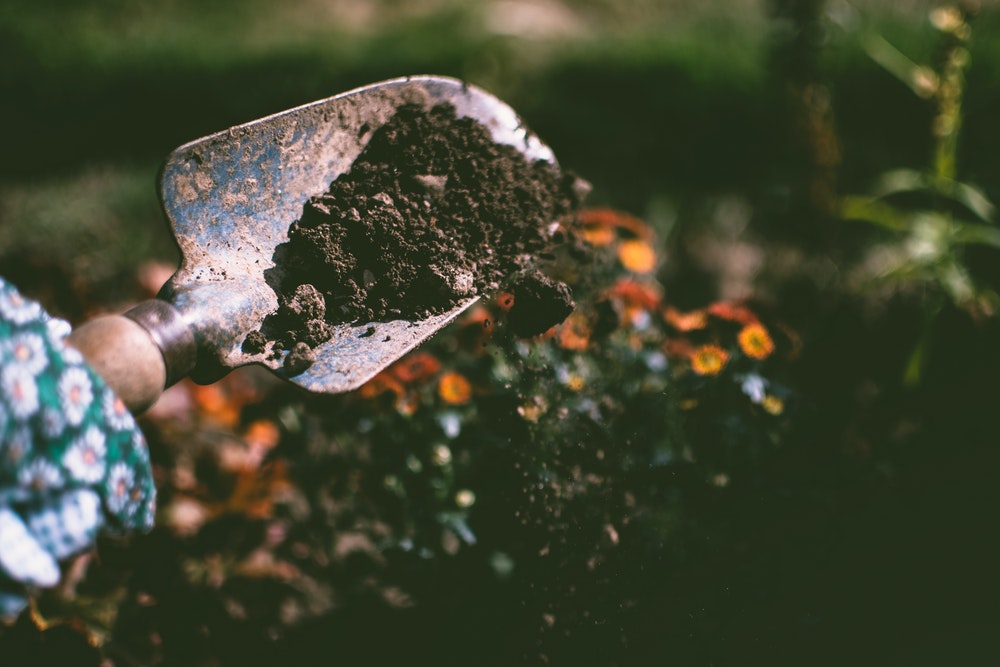Healthy plants are grown from healthy soil. They need the proper amount of water, air, and nutrients in order to flourish. And your soil is there to help control the supply of those resources. But healthy soil is not a given, and it’s certainly not something to be taken for granted.
Soil health needs to be properly managed each year, to ensure a successful growing season. Below we’ll go over how to prepare soil for planting in your garden, to make sure you make the most of your garden this year.
What makes soil healthy?
Healthy soil provides your plants the necessary nutrients that they need to grow. It is a complex ecosystem, home to a wide range of living organisms, and it offers a physical structure to support plant roots. All three of these areas, the chemical, biological, and physical health of your soil, are important to keep in mind when you’re preparing your soil.
Nutrients
Plants require a wide range of both organic and inorganic nutrients to grow. Your soil is a dynamic system that is always changing, so the nutrients in it are also continuously being changed, consumed, or added.
The chemical health of your soil, or the amount of different nutrients available in it at a certain time, is probably the most complex factor to understand and manage. But through testing of soil samples, and guidance from experts, it can also be the area where you can make the most impact in soil health.
Living organisms
The biological health of your garden soil relies on the living organisms that call it home. From small microbes to ants and earthworms, they all play a part in supporting plant growth. The organisms in your soil create symbiotic relationships with the plant roots, they help convert organic matter into available nutrients, and they even improve the structure of your soil.
Good soil structure
Proper water distribution, drainage, and aeration in your garden soil all come down to good soil structure. Plant roots should be able to grow freely through the soil and have access to air, water, and nutrients. Soil that’s too compact, is lacking in the essential pores that are necessary for growth and good resource distribution.
While soil that’s frequently disturbed can lose important aggregates, leading to quick depletion of nutrients. Your soil type will also impact the soil structure and how healthy it is for plant growth. Soil is typically categorised by three different types of particles: sand, silt, and clay. You want your garden soil to be a combination of the three.
If your garden consists of more sandy soil, then you may have good aeration, but poor retention of water and nutrients. Soil that is mostly clay on the other hand, will hold more moisture, but will be more compact than desired, leading to poor drainage and an inadequate environment for biological activity because of poor aeration.

How to improve soil quality
Poor soil quality can be improved. So, if you think your garden soil is limiting the potential of your vegetable garden, don’t worry, you can fix it. There are many easy ways to improve soil health in your garden and prepare it for planting.
Nutrient addition
One of the easiest ways to prepare soil and improve its quality for planting, is to add nutrients. You can add compost, or add organic matter which will continue to decompose in the soil with the help of the soil organisms. The organic matter adds moisture as well as valuable nutrients to your garden soil.
Cover crops
Planting cover crops is another great way to maintain soil health and prepare for the next growing season. Cover crops are plants that are grown in the off-season.
They promote good soil structure, and prevent erosion or the loss of nutrients to the environment. The residual plant matter from cover crops can also be used to add more organic matter back into your soil.
Soil disturbance
To maintain good soil structure, you should try to avoid disturbing your garden soil too much. Excessive tilling will break apart soil aggregates, making organic material in the soil readily available for soil organisms. This causes nutrients to be depleted too quickly, and requires the addition of more organic matter.
Try not to walk through your garden unless you really need to, to avoid compacting the soil by destroying the network of pores.
Need a shortcut for great garden soil?
If you want to prepare the most nutrient-rich soil for your garden, but you don’t have the time to invest in creating your own compost pile, then you might want to consider these great organic products from Green House Feeding. They work by promoting the bioavailability of nutrients to the plant.
The BioGrow and BioBloom products are a great alternative to adding organic material to your soil, and continue to release nutrients to your plants for 8 weeks. Global Garden even offers an easy to use Bio Nutrient Calculator to help take the math out of the equation.
Just put in some basic parameters about your garden or growing operation, and you’ll get a custom bio nutrient chart, detailing how much additives you need per plant, and when to apply them.
Conclusion
The health of your soil is vital to cultivating a thriving garden. If you don’t have optimal soil health right now, you can implement some easy strategies to prepare your soil for planting. Nutrient addition, planting cover crops, and reducing soil disruption are all ways to promote healthy soil and proper plant growth.
These strategies rely on and support the three basic factors of good quality soil: adequate nutrient content, a diverse ecosystem of living organisms, and good physical soil structure. Check out this article, if you need more tips on growing an organic vegetable garden.
About the Author
Alli Klein is a copywriter with a passion for sharing knowledge. She is an author for Global Garden, a distributor of premium nutrients, and indoor grow and hydroponic equipment.






